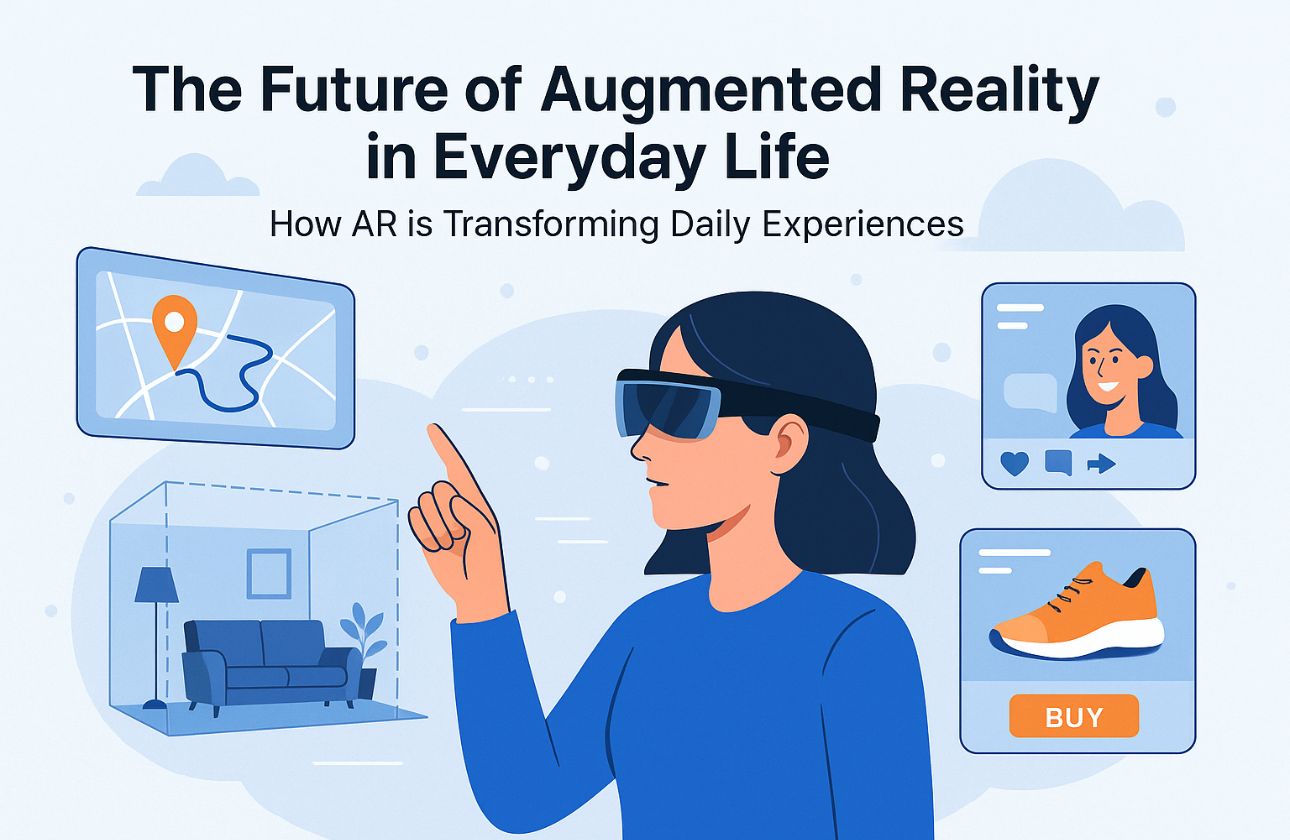Introduction: The Rise of Augmented Reality
Augmented Reality (AR) is no longer confined to sci-fi movies or tech expos. It's becoming a part of our daily routines — enhancing how we shop, learn, work, and even socialize. As AR technology becomes more affordable and accessible, its impact on everyday life is rapidly expanding.
1. AR in Retail and Shopping
Imagine trying on clothes virtually or placing a 3D model of a couch in your living room before buying it. AR enables consumers to make smarter decisions, enhancing the online and in-store shopping experience. Brands like IKEA, Sephora, and Amazon are already using AR to engage customers more deeply.
2. AR in Education and Training
In classrooms and corporate training, AR turns abstract concepts into interactive experiences. From virtual science labs to historical reconstructions, AR improves understanding and retention. Tools like Google Expeditions and Merge EDU are paving the way.
3. AR in Healthcare and Medical Training
Doctors now use AR for surgical planning, diagnostics, and training. AR can project 3D visuals of organs or bones, helping surgeons operate with more precision and students learn with more immersion.
4. AR in Navigation and Travel
AR apps enhance navigation by overlaying directions onto real-world streets. Tourists can explore landmarks with AR guides, and indoor AR navigation helps people find their way in malls, airports, or hospitals.
5. AR in Entertainment and Gaming
Gaming was the starting point for AR’s popularity (think Pokémon GO), but the possibilities now extend to immersive concerts, virtual sports events, and interactive movies — all enhanced by real-world overlays.
6. AR in Home Design and DIY
Interior designers and homeowners use AR to visualize furniture, color palettes, and layout changes. Apps like Houzz and Home Depot AR let users preview before they commit.
7. AR in Social Media and Communication
AR filters, lenses, and effects on platforms like Instagram, Snapchat, and TikTok aren’t just fun — they are changing how people communicate and express themselves visually.
8. The Future: Wearables and AR Glasses
As AR glasses like Apple Vision Pro, Meta Quest, and other smart wearables become mainstream, AR will transition from mobile screens to hands-free, immersive experiences — transforming how we interact with digital content.
AR Is the Future of Daily Interaction
Augmented Reality is no longer futuristic — it’s functional, fun, and foundational to how we’ll live in the coming years. From the way we shop and learn to how we heal and play, AR is transforming our everyday lives. The future is not just digital — it’s augmented.




Comments (0)